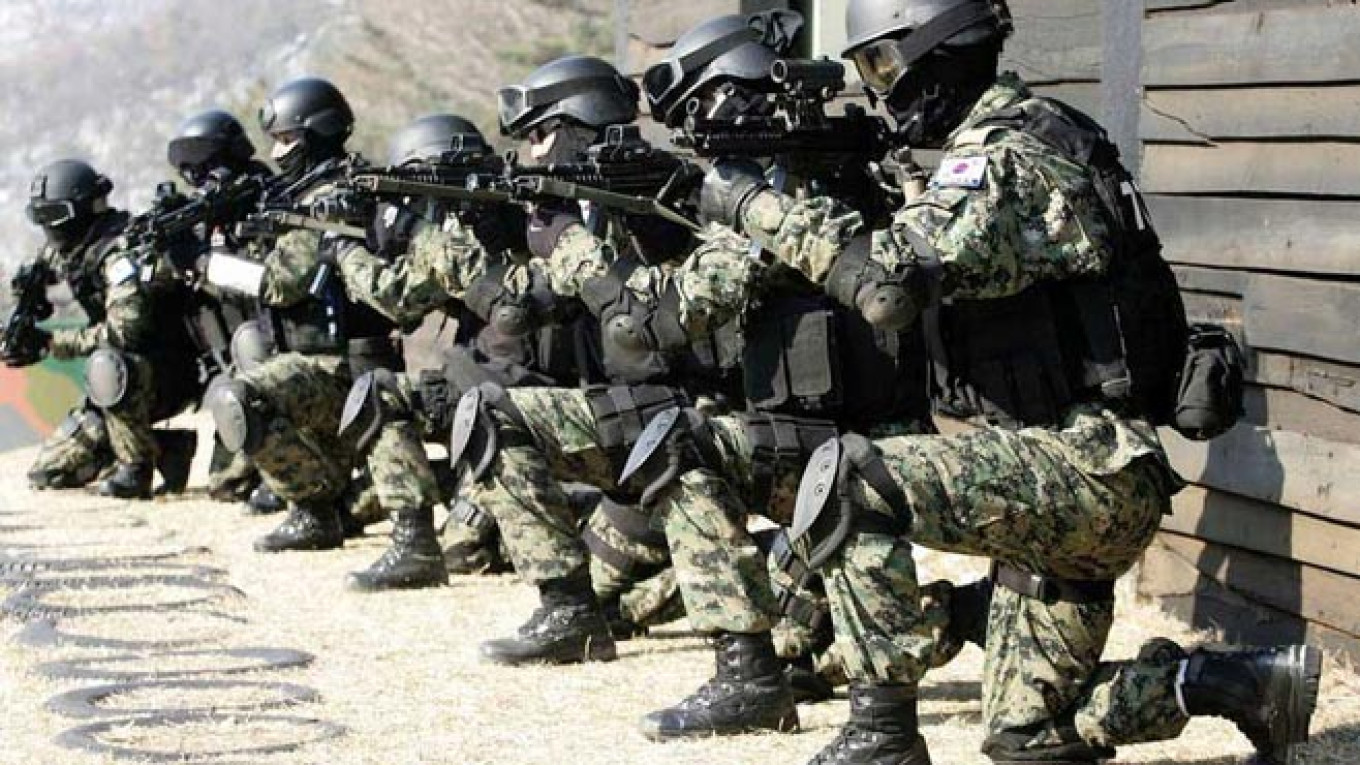Russia's absorption of Crimea is still underway, but there have been already a number of attempts in the Western press to analyze the Russian military's performance there. Some, as the authors of the comment in the April 2 New York Times, compare that special operation with Russia's 2008 war with Georgia and two campaigns in Chechnya to conclude that the Russian military's performance has visibly improved.
While the conclusion is right, the underlying comparison is not. The Russian-Georgian engagement during the 2008 war featured elements of a classical 20th-century interstate warfare with regular units of the Russian armed forces fighting their Georgian counterparts. As for the latest Chechen campaign, it initially featured elements of urban warfare, but for the most part it has been a counter-insurgency effort. Also, in both Chechen campaigns and in the Russian-Georgian war, the adversary offered organized armed resistance to the Russian Army. In contrast, the operation in Crimea was a covert one, in the course of which Ukrainian soldiers may have fired a few shots but left the Russian forces' fighting capabilities untested.
In addition, while the previous campaigns employed mostly regular Russian Army units featuring conscripts, some of whom were not adequately trained, the Crimean campaign was conducted by professional special forces. Russia's leaders have staunchly denied sending units to the peninsula, insisting it was mostly the work of local pro-Russian self-defense activists. But media reports indicated that personnel of the Russian General Staff's Military Intelligence Directorate, as well as from the Air Forces and Marines, took part in the operation.
While some reports in the Western media note that the forces in Crimea were well-equipped compared to previous campaigns, there was little in that gear that would constitute a game-changer. Yes, the digital-pattern camouflage uniforms looked slick, as did the googles. The Russian version of Humvees looked impressive and smaller-size encrypted radios were effective. But it is doubtful that it was this gear forced the Ukrainian military to give up without putting up a fight.
Rather the Crimean operation reaffirmed what Russian military watchers have known for several years now: Russia's Special Forces are rigorously trained, well-equipped, highly disciplined and effective in carrying out rapid covert operations, including seizing facilities. It is only natural for these forces to do their best to conceal their preparations, communications and operations. For Special Forces detection amounts to failure. That is why the Russian Special Forces went out of their way to ensure their swift deployment in Crimea came as a surprise to the Ukrainian military. Their ability to surprise the adversary in Crimea stands out when compared to some of the past performances by the regular Russian Army units, such as when an Army commander borrowed an unencrypted satellite phone to direct fire during the 2008 Russia-Georgia war.
If the Crimean operation was conducted on a larger scale, requiring greater use of regular Army forces and had the Ukrainian military decided to put up a fight, chances are that we might have again seen some of the flaws that the Russian military suffered from during the 2008 war.
Of course, the scale and depth of these flaws have decreased considerably since 2008, thanks to serious military reforms and substantial increases in defense expenditures. Nevertheless, comparing a covert operation conducted by special forces against an adversary that chose not to fight with a larger-scale military campaign, which involved mostly regular units and intensive military-to-military fighting, is like comparing Crimean apples with Georgian oranges.
Simon Saradzhyan is a research fellow at Harvard University's Belfer Center for Science and International Affairs.
A Message from The Moscow Times:
Dear readers,
We are facing unprecedented challenges. Russia's Prosecutor General's Office has designated The Moscow Times as an "undesirable" organization, criminalizing our work and putting our staff at risk of prosecution. This follows our earlier unjust labeling as a "foreign agent."
These actions are direct attempts to silence independent journalism in Russia. The authorities claim our work "discredits the decisions of the Russian leadership." We see things differently: we strive to provide accurate, unbiased reporting on Russia.
We, the journalists of The Moscow Times, refuse to be silenced. But to continue our work, we need your help.
Your support, no matter how small, makes a world of difference. If you can, please support us monthly starting from just $2. It's quick to set up, and every contribution makes a significant impact.
By supporting The Moscow Times, you're defending open, independent journalism in the face of repression. Thank you for standing with us.
Remind me later.


